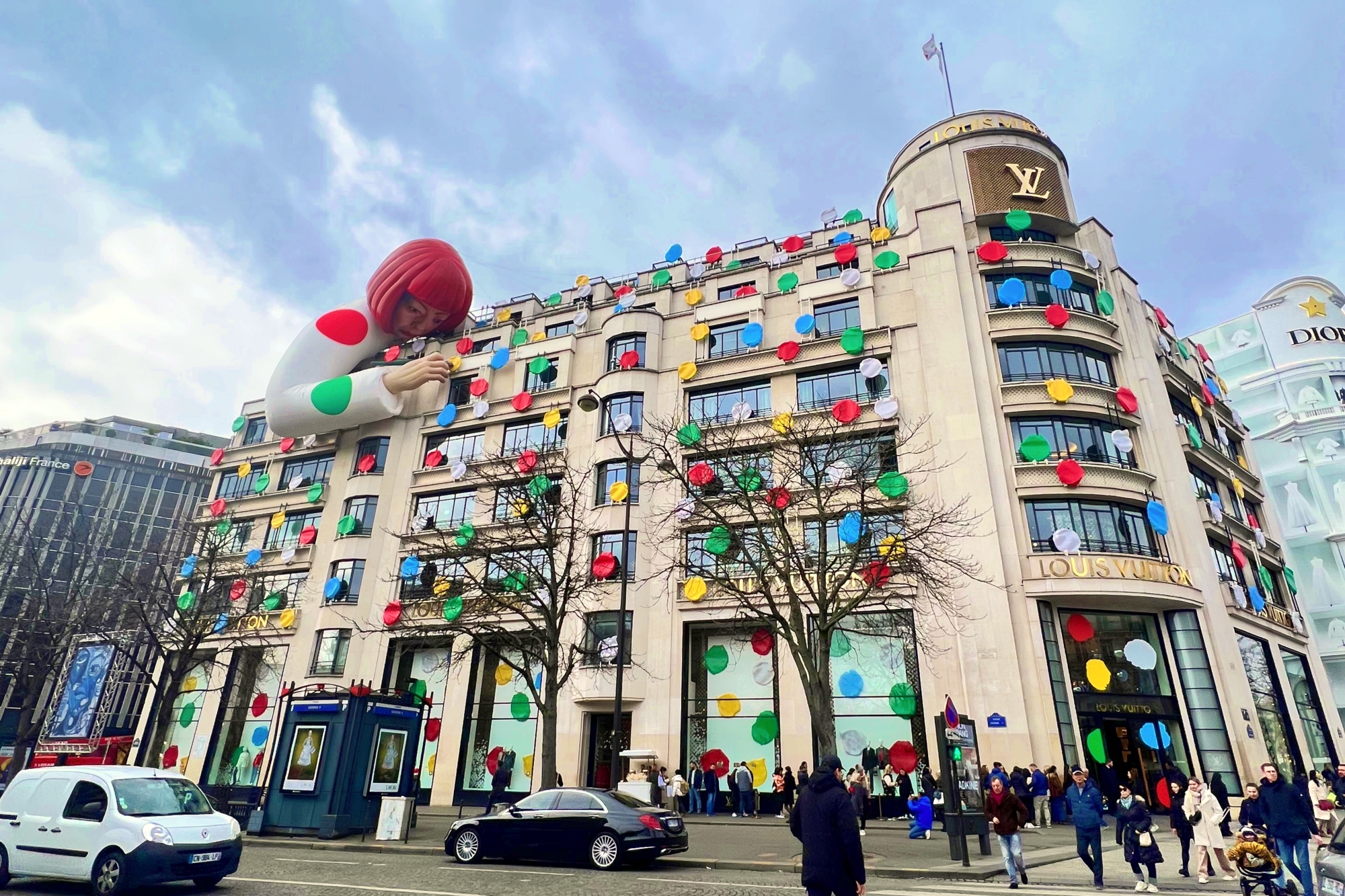We have partnered with Volsung Limited to provide clients with high-quality real estate investments in Berlin. In this Spotlight interview, we talk to Ian Sigmund, who founded Volsung almost four years ago, and we learn about the factors that make Berlin a leading city to invest in real estate. Ian discusses how Berlin’s thriving economy and high rental growth make it an ideal location for investors looking for a stable and profitable investment. He also emphasises how continuously learning about the industry and having the right people around you is crucial to success in real estate. Ian’s insights are invaluable for anyone looking to invest in real estate in Berlin or learn more about the real estate industry…
Explain what you do.
I run a company called Volsung Limited which is part of a larger real estate development company called the Ten Brinke Group. Our job is to work on developments from our parent company in the ten-to-twenty-million-euro project size range that don’t quite fit the typical institutional investors they have. So, the developer we are part of typically sells to larger funds like Aberdeen Asset Management, Quantum, and Vonovia, who are some of the more prominent players in real estate. But the projects we work on are slightly smaller, and the regions we work on are predominantly continental Europe; that’s where Ten Brinke builds, and with a considerable focus on Germany, then narrowing that down, Berlin. We see Berlin as the most promising market and have focused substantially on that.
So, we find these smaller developments that we otherwise would have overlooked because they’re not for our typical large institutional clients, but they do make sense from an investor perspective. Then we work with financial advisory companies and private wealth firms to locate clients interested in investing in real estate and are interested in potentially having euro exposure. In a nutshell, our partners find clients interested in purchasing, and we provide the products.
Have you always been interested in property investment?
Not particularly. But when I left university, I went straight into a real estate company. I received a scholarship to go to the Chinese University of Hong Kong from the UK and was there for four years. After graduating, my last internship was at the Royal Bank of Scotland in trade finance, and I was offered a job there. Unfortunately, the timing was terrible due to a hiring freeze implemented worldwide. I was told by my boss, who I got along with very well at the time and still do, that I should wait for it to clear up in a couple of months. Unfortunately, a few months passed, and they decided to retrench back to the UK entirely. So they shut down all the offices in APAC. After that, my boss introduced me to a friend of his and asked if I might be interested in doing real estate.
Initially, I started as an investment research analyst at that company. I also speak German, having been born in Vienna, Austria. So we were looking into Berlin and Germany as a market at the time, and I was the only German speaker, so that was very helpful, so I slotted myself in there. I spoke to a lot of developers, built good relationships, and we launched a few projects at that company. So the interest developed from there. I found a lot of really great people to work with from all aspects of purchasing real estate; you need lawyers and mortgage brokers, and you need to speak to real estate developers, and I had excellent relationships with all of them.
So, I wouldn’t say I was specifically passionate about real estate. The people we worked with were very professional, and that’s not always the case, especially in the residential real estate sphere. So, it was great to have this team together. Everyone worked above board, and it all ran smoothly and was very clean for the clients. At the end of the day, the clients made a lot of money with the developments that we launched, and that created a passion for it. Overall, that is what really encouraged me and pushed me to focus on real estate. I ended up launching my own company shortly after.
What do you love most about your work?
The people. I was at that company for three and a half years, and once I left, I was in charge of Germany – sourcing projects and developments. It was a medium-sized company with one hundred to two hundred employees, and I was the German expert. Speaking the language helped a lot, and I managed the whole process. Not only did I end up sourcing developments, but I was also present in many client meetings and client-facing with the salespeople. I would also help with client services when things inevitably get tricky because things will not always run smoothly in real estate, especially with off-plan developments. So, you have to be prepared for that. The company’s slogan was that it wanted to make real estate as easy as buying shares on the stock market. Obviously, it’s never quite that easy, but the goal was to streamline the process as much as possible and keep it very hands-off for the investors.
On the client services side, I was very involved because I had a relationship with the developers, so if anything came up, we would always go back to them, providing regular updates to clients. From the sourcing side, I would go to Germany a lot, to Expo Real, one of the big expos down there, so I would also be present there. But really, I love all sides of the business because you get a general overview. When sourcing a project, especially off-plan, alarm bells go off for many buyers because it is not built yet, so you need to check the developer’s reliability. It is challenging, especially when you do so many projects as that company did, to have the most amazing developer every single time. So, it was my job to mitigate that. I really enjoy working with extremely professional people.
You have worked in China, Hong Kong, and Germany. Where is home for you?
I have a bit of a weird background. I was born in Vienna, where I lived for three years. I moved to Shanghai for six years, then to the UK for two years, in the Norfolk area. After that, I lived in Switzerland for two years and then returned to England before attending university in Hong Kong. Hong Kong is the longest I have lived anywhere. I was there for twelve years, so if I were to call anywhere home, it would be Hong Kong.
The travelling does take it out of you, though. I remember before the pandemic, when we were first starting Volsung, and I had to work with a lot of different distribution channels and financial advisory firms all around the world; I was flying to Qatar, and I was sitting on the plane thinking, ‘what an earth am I doing?’. You lose track of things because you are in a different time zone. It takes its toll. So initially, the pandemic was quite nice because it forced me to stop. But I shouldn’t complain. Travelling is amazing. That’s another reason I love the job because I get to travel around so much.
What do you find most challenging about your work?
The first thing that comes to mind is the people, again. For example, if you work with your family and are around them too much, there will be friction. Especially in business, because at the end of the day, my job is to ensure the clients make money. I want to provide a product that clients are happy with and that it’s a good deal. On the other hand, the developer also wants to make money.
One of the more challenging things is creating price lists for projects because I make the floor plans whenever we buy a plot. Many buyers only want to invest a certain amount, so typically, smaller apartments are more desirable – not always – but generally speaking. Fortunately for Berlin and many main cities, buying a small apartment also makes sense from an investor’s perspective because you get higher growth. So, it’s planning all that out. Small apartments are more expensive to develop and build because the highest cost when building these apartments is the bathroom. If you are building a 100-square-metre apartment, you only have one bathroom, maybe one and a half. But if you have three square metre apartments, you’ve got three bathrooms to build, and then it gets more expensive. It also gets difficult to plan around fire regulations; if you have just three apartments per floor, it’s much easier to do fire safety and plan where the staircase will go. That’s usually a big issue in Berlin. Whereas if you do ten apartments, it gets trickier. You might also have to do a certain number of apartments for social housing. Here you have to build a certain number of bike spots, usually one per apartment, sometimes two in certain Berlin districts. You might also have to build a playground if you have more than a certain number of units, which doesn’t make sense if you have studio apartments where no families live. A lot of these rules are counterintuitive.
At the end of the day, it’s about Ten Brinke, the developer wanting to get the best price possible, but the clients also want to get the best price possible. So, it’s bringing that together to make sure it makes sense from a builder’s perspective and the risks that they take building a development. Then the buyers want to buy the product because it is attractive, well-priced, and of good quality. Essentially it’s finding the middle ground between all parties and ensuring everyone gets a good deal out of it because there are a lot of intrinsic factors that people don’t look at with international investors that make sense from a developer’s perspective. If you have an international buyer buying, they won’t visit the plot ten times a month to check on the progress because they have to hire someone to oversee everything. Usually, they tend to have more specification requests like wanting to change floors or a different wall colour – the more time-intensive it is, the more expensive it is for them to build. So that’s a good trade-off. Finding things like this makes it more economical for the developer without the investors losing out, so they can still get lower pricing because the developer doesn’t need to hire someone for all these tasks. It’s about finding these nuances which make it more attractive to everyone. It’s challenging when there are so many different parties involved. Even when planning a development from the architects, you’ve got a project development team.
At Volsung, we do everything in-house, and we also do construction in-house. We don’t outsource to various contractors – we do everything. But everyone has opinions on how everything should look, of course. So, we like to schedule a meeting with everyone involved, and that way, you get an understanding of what everyone wants, there is a level of compromise, and then we can move forward.
Why should someone consider investing in property in Berlin? (As opposed to other European markets?)
The main thing is, whenever people invest in real estate, what do you look at? Supply and demand. It’s the most basic thing, and so many variables go with that. You’ve got population growth, various different forecasts, how many partners are in the market, how difficult it is to rent the units, etc. With Berlin, when I speak to clients, I just refer to one figure, which makes everything a lot easier when comparing different markets. That figure is the residential vacancy rate. The vacancy rate tells you an entire story in one figure because it will check all of the apartments. When a survey is taken, obviously, some apartments will be vacant for holiday homes, second homes etc., but as a rule, this is the best figure to look at if you are going to look at just one.
Berlin has a 0.9% residential vacancy rate; for a city of 3.8 million people, a vacancy rate under 1% is basically unheard of. If you look somewhere like London, it will be about 2.5%, which is also incredibly low. Units do get rented phenomenally quickly in London as well, but in Berlin, we rented out one hundred and fifty units last year. Everything goes in less than two weeks. We’ve got a lot of people moving over from big tech companies such as Amazon. Recently, with the Russia-Ukraine conflict, some people think it has had a negative impact on the real estate market in Germany. We had one development that was pretty much exclusively taken up by Russians because it was sort of the ‘brain drain’. People working for Deutsche Bank and Deloitte in Moscow and St. Petersburg were all relocated to Berlin. So, Russia’s loss is Berlin’s gain in terms of bringing more smart, intelligent, and well-educated people to the city. Also, these people have been living in a hotel for the past two months because they cannot find an apartment – it’s that difficult. There are seventy-six enquiries per new build apartment per week in Berlin – seventy-six! The next city in Germany is Cologne, which has twenty weekly enquiries. So, you’ve got seventy-six enquiries every time you put a new build apartment up for rent. I can’t overstress the demand. People are honestly living in hotels – we know this because when we ask for the tenant information, they have to say where they lived before. So, we have had a ton of the companies just put up in hotels. They will have been living there for one, two, or three months and will take any apartment they can possibly find. That’s how dire the situation is from an under-supplied perspective.
More interestingly, finance is very easily accessible in Germany. We work very closely with a pension fund, not a bank, which makes the number of forms you fill out a little better and less arduous than if you compare it to somewhere like the UK. The interest rates are also a lot more attractive. Before interest rate rises, I secured a 0.5% fixed rate for ten years for one of our clients. That was the best one. I even bought three Berlin apartments myself in our project. I got 1.9% fixed for ten years. So when you’re fixing a rate for that period of time, it takes the uncertainty out of it. If you’re using variable rates, you’ll always be impacted by interest rates. But in Germany, because they’re a market where they pretty much only advertise ten-year fixed rates, they are less hurt by the temporary volatility. So people will hold for ten years, and it doesn’t bother them much whether the prices go slightly up or down. So we’re pitching clients on that. Currently, the interest rates are 3.9% fixed for ten years, which is still much more attractive when you compare it to somewhere like the UK and other countries in Europe, certainly compared to the US.
From a financing front, it’s also very easy. Everything can be done at home. You don’t need to appear in Germany in person. There is a very streamlined process. Then what links into the ten-year hold is the capital gains situation. So, the big sell is that as long as you hold a property for ten years, you don’t pay any capital gains tax (CGT) on exit, so that ties into your fixed interest rate. There are very few countries in Europe where you can sell CGT free. It’s different from Dubai, the Middle East, Hong Kong or Singapore. Many people think the government is doing this as an incentive for people to buy. It’s actually not. They don’t want people buying one year and selling the next – that’s what they are trying to deter. So by doing that, there is no capital gains tax in Germany. It follows the income tax brackets, and you quickly get to 40% or 50%. So if you want to buy in Germany, buying one year and selling the next doesn’t make sense. Maybe choose a different country.
What’s special about Volsung compared to other offerings in the market?
I was at my previous company for about four years, and what they did was very similar to what I am doing now. They had a lot of employees, like one hundred and fifty employees, and it seemed that there were way too many cooks in the kitchen – far too many. As I was involved in almost every part of the process, I know you don’t need that many people. At Volsung, what we do is we guide clients through the acquisition, we help them get financing, and then we ensure a smooth handover of the asset. You really do not need that many employees to do that. Also, if you have that many employees, you have many more offices. While I thought they had a great business model, it could be much more streamlined. So that’s what we did with Volsung; we streamlined it. We don’t do fancy marketing campaigns or lots of Google ads, and we don’t waste money on advertising. We work with a few well-reputed distributors, such as financial advisory companies or private wealth firms, and have close partnerships with them. We don’t create models of developments like you tend to see with Savills and Knight Frank, especially in these kinds of developments. We keep it very simple because we know the type of product we provide is an investment product. It’s something that people hold on to; you rent it out to the people that need it in the local market. It’s very simple.
There are essentially three people working at Volsung, and we are able to manage the whole process, just the three of us. Streamlining it helps a lot. We are also part-owned by the Ten Brinke Group, which is the developer. So it incentivises everyone and keeps us all on the same page. Ten Brinke Group are one of the largest real estate developers in Germany. What is special about them and quite unique, and not everyone will potentially get this, is that they don’t use construction finance for the developments they work on, so they equity finance from their balance sheets. This means that when interest rates are rising, a lot of smaller mid-sized developers are going to have problems and potentially go bankrupt because they brought plots which are far too expensive. Now, they can’t afford the interest rates. There’s a lot of mezzanine financing going around and a lot of loan notes. I know places like the UK where that’s quite popular, but it isn’t sustainable.
So, we are a very large company. It is family-owned, and they are a Dutch family that is very conservative in its approach to the market. Even now, they’re cutting down a lot, and their requirements for new developments that we launch are very strict. Not because we’re in trouble but because the general market is coming to terms with high-interest rates. When they see that, they try and mitigate risk. Therefore, they are an incredibly risk-averse business. So we don’t use construction finance, and we also don’t use SPVs (special purpose vehicles). When I was working at my last company, Ten Brinke was the only company I saw that didn’t use SPVs. This means whenever people or developers buy plots, they will create a new company to indemnify themselves just in case something goes spectacularly wrong. Worse comes to worst, they only lose the value of the plot. With Ten Brinke, you’re constantly engaging with our residential arm. We do one billion euros, not all residential, but I would say 90% of real estate activity is through that company. We are not pushing the blame away from us. We have been around for one hundred and twenty-five years, and we know the quality of what we build. We know what we build is steady and sustainable, and we’re not afraid of shirking responsibility. We would much rather complete the project than have it go under.
We also build a lot for the German government. We have a project development side, and we have a construction side. One large development we did was The Centre for International Development in Bonn, and that’s a 165-million-euro project for them. We build a lot for the big institutional players, and they wouldn’t do business with us, certainly not the government, if we didn’t have an absolutely stellar reputation.
The great thing about engaging with us, as opposed to a lot of other agencies that sell five, ten, fifteen or twenty different developers, is that we focus on one developer that has a phenomenal reputation in the market; a developer that will build and where you don’t have to worry about the fact that it’s off plan. They have a reputation going back over one hundred years, and the same family that owns it today. We believe reputation is everything, and referrals and word of mouth are the best form of marketing as well as the most cost-efficient. That is something we have really focused on.
We have only launched four projects since founding Volsung three and a half years ago. We had three developments complete last year, and we’ve had so many clients reach out, saying they are so happy with the process. It was so clean and smooth, both in the completion of the product and also getting a tenant in there. And these guys purchase again, so they are buying again in our projects now. That’s the thing to always hit home for me because you’re saving so much on the budget that otherwise would be an increased cost. If you don’t have a marketing budget and rely on word of mouth or referrals, you’re making huge savings. That, in turn, can be translated into the product. Everyone involved has had a very good experience. Both the developer, in terms of selling the project, and the clients we have had who are returning and buying more. The prices, obviously with what we sold a couple of years back, have gone up 20% – 30%. For the rents we advertised, we advertised 10% higher; 99% of clients got a 10% increase. For a couple, we got what we predicted initially and certainly nothing lower. And those are the things that make people buy again; they’re comfortable, it’s a steady income, it’s sustainable, and it’s German real estate. That’s how we market ourselves.
Can anyone invest in property in Berlin?
As long as you have a steady job and can afford the initial payments, then pretty much anyone can buy. Unless you are Russian, as they are banned from purchasing property in Europe. Also, regarding a mortgage, if you are a tax resident in an EU-blacklisted country, you cannot get a mortgage. So some places like Zimbabwe, North Korea, Sudan, those sorts of places. But obviously, we don’t really have those issues because we do not market those areas. The UAE is fine, as well as Oman, Qatar, Hong Kong and Singapore. Most of our clients are from the UAE, Hong Kong, Singapore, South Africa and Switzerland. These are the key markets.
What does the typical process look like?
Let’s say you know the unit that you want. So, you will complete a reservation form, send us a copy of your passport, and then send us five thousand euros or US dollars as a reservation fee. We refund that money back in its entirety, provided you go ahead. Because if we are taking a unit off the market, we need to hold some deposit. Once we have the reservation fee, we inform the notary in Berlin, who sends out the purchase contract. At the same time, we send a welcome email to you detailing the next steps and introduce you to the recommended lawyer. This lawyer will sign on your behalf at the notary’s office in Berlin.
The whole process takes around four weeks in terms of introducing you to the lawyers and the lawyers breaking down the purchase contract for you. The most tedious thing about the process, which is different from the UK, is that in Germany, you have to sign a power of attorney at your local German consulate, wherever that may be around the world. So we will put the exact location in the welcome email, and it’s super simple – you click on the online link, schedule an appointment, show up there, and in fifteen minutes, you are done. The Germans are very efficient, and you will get through very quickly. So that’s the only sort of thing which is different compared to buying in the UK. You then take that power of attorney, send it back by post, and send the soft copy to the lawyer representing you in Berlin. The lawyer is then allowed to sign on your behalf. At that point, you then pay the acquisition cost, so it is all very streamlined.
What else do you want to achieve in your career?
Well, we started a lettings management company last year. The whole idea was to keep the process as simple as possible and, again, very streamlined. We mainly did this because we wanted to keep the clients happy, and we wanted them to have a smooth process. It is certainly not the most profitable company that I have come across – it’s actually a complete nightmare. Perhaps it makes more sense if you have a thousand units under management. But we don’t charge very much compared to the UK; we only charge forty euros plus VAT and management fees. Then there’s the tenant finder fee, which is one and a half months plus VAT. So you make money really on the tenant finder fee. But a lot of work goes into vetting tenants and creating escrow accounts to hold the tenant’s deposits in. We have to advertise and go out on all the portals, which we have to pay for, and we also have to do the viewings. So it’s a huge amount of work. If I had my way, I wouldn’t do it, but that is not possible because I like to keep it all in-house and not outsource to someone else. You need quality control, and we have been able to achieve that. So not the most profitable venture in the world, but it has meant that people have repurchased with us, we have kept the reputation, and our relationship remains strong with clients. So on that front, it has been semi-successful.
I always thought about going into development as well, in some form or another. Or as I have worked very closely with the Ten Brinke family and have a fantastic relationship with them, I would like to help them expand into a new market, wherever that might be, potentially the UK. I took a course not long ago in construction development and project management by RICS, the Royal Institute of Chartered Surveyors, specifically focused on the UK. So in the next few years, that’s something I have in mind and potentially spanning out into institutional investment. We speak every now and then to family offices in Hong Kong and the Middle East about expanding our offering beyond your typical retail investor and other institutions that might not know of Ten Brinke or are not entirely familiar with the German market. So yes, there are two different angles. One is the institutional side of things on sales, and the other is getting my hands dirty with the construction development and learning more about what goes behind that.
I don’t really like selling people things I do not know about inside out, and there are things I am discovering all the time. I’ve done this for eight years now, and I am learning things all the time about construction because quality is so incredibly important—for example, the materials people use and just basic things like the flooring or the wallpaper. There are different levels of wallpaper in terms of quality, and there’s also the quality of doors you can use. There are all these minor things that you should know, and if you are doing sales, you need to know that. A developer can give you a price, and it can look amazing, but if they’re using substandard materials on everything, that just won’t fly. So it’s those sorts of things.
I’m just trying to dig deeper into what I am doing right now, becoming more knowledgeable and expanding it. Everything is linked and connected, and there are always synergies.
Are you seeing any interesting trends in the property market right now?
It’s a weird time at the moment because the interest rates are so in flux. I think if you are buying in city centre locations, certainly in Europe, you are going to be okay – the undersupply is unbelievable. As I mentioned, I bought three apartments in Berlin and am not at all worried. I did have a past client who came back and asked if he should sell his apartment now, and I absolutely do not think people should do that.
I am seeing in person how many people turn up to viewings. When we do viewings, we only have to leave the advert up until we get thirty responses; otherwise, we get flooded with too many applications. So we leave the advert up, and once we get thirty responses, we take the ad down and do the viewing. Only after that will we put the ad back up, wait for the responses, and then do another viewing. Because it is just that undersupplied at the moment, and the rents are increasing a lot.
We need to build more. The sad reality of places like Germany is that they don’t hand out enough planning permits. Taking Dubai as an example, for a long time, Dubai was oversupplied. They just flooded the market with permits, and the rents were fairly affordable. You had your pick of where you wanted to live. Now it’s changed slightly, given that many Russians have moved over, and the demand has skyrocketed. But that’s the solution if you just provide incentives.
Also, we build a lot of social housing for various government-owned asset management companies in Germany. We will build it on their behalf, incentivising and making it easier to get planning permits. The number of permits issued in Germany has gone down dramatically. I think I saw it decrease by about 27% year on year because many of these small and mid-sized developers are struggling with construction finance. But if you made the planning process a bit easier and more streamlined and brought it into the 21st century, I think we wouldn’t have seen that decrease.
If you invest in real estate, you want to see an undersupplied market. There’s a certain extent because it’s also politically very contentious when you have exceptionally high rents, and people can’t afford them. Nobody wants that situation. You want a steady market where rents are increasing 2-3% per year. Most investors are totally happy with that. In Berlin, the prices have been going up to 10% for the past five, six, and seven years. Nobody needs that high level of growth because when you buy real estate, you hold on for ten years, so people would be happy with 3-5%. It doesn’t need to be through the roof. And I think this image has been put out about investors like they are greedy and want the highest possible rent they can have. I have seen the opposite of that. People are happy to go with slightly lower rates for reliable tenants. We don’t need to increase rents by 6%, 8% or 10% per year. That’s totally unnecessary. That’s not what buying real estate is about. It’s supposed to be boring; it’s supposed to be steady, and it’s supposed to be sustainable.
What advice would you give someone wanting to build a career in property investment?
I would recommend joining a mid to large-sized company. It doesn’t matter what department you’re in or what sort of real estate sphere you’re working in because you usually cover many different areas with a company that size. Then you get a lot of exposure. You also find out what you like to do and can just throw yourself into things. I think the biggest mistake I saw was people saying, “Oh, it’s not my job, so I’m not going to do it”. That’s totally the wrong way to look at it because even when you are starting a career, you’re not going to be earning very much, even if you’re working at one of the larger companies. And that’s fine. That’s your chance to soak up as much information as possible, and you can offer to help other departments and other teams to get more knowledge. If you find specific areas interesting, just go into that and get involved there.
I was in the investment team, or that’s what it was called in my last company, but I was going to client meetings. I didn’t get any commission. There was no increase in salary or anything. Obviously, if you are needed within the company, then wage increases come, but that wasn’t the reason I attended those meetings. I wanted to soak up as much information as possible. I wanted to see how client meetings work. I was around a lot of excellent salespeople, which was fantastic, and I just enjoyed seeing different approaches.
From a sales side, Germany is one type of product, but you can sell it in so many different ways. So seeing how other people sold that type of product was really interesting to me because they were very successful salespeople. Then from the client services side, you get to see, in a way, what errors everyone makes. When you see those sorts of mistakes, you get to see where it went wrong, and then you know for the future. So for me, the most important thing was just throwing myself into everything and never saying something wasn’t my job. You never know what is going to happen. I ended up starting this company with Ten Brinke, and my job encompasses a whole range of things now, which is a huge benefit medium to long term.
What is it like working with us?
At Volsung, we are not interested in going out to one hundred different companies or private wealth firms because then you spread yourself too thin. For us, working with a couple of companies and just focusing on them is more important.
The team here are very hands-on with their clients and always there for them. They also ensure I am there with the clients in person, which is great. I am always available, even post-completion. For example, a couple of months ago, when I was not yet working with you, and we didn’t even have the terms of business set up, they had a client who was having difficulty setting up a bank account in Europe and really struggling with it. So I was able to pop on to a video call to help her out. It’s not like we get additional fees or anything from doing that, but it keeps the clients happy. So it’s good to see you are also concerned and want to always help. It goes back to what I said before; they also value their reputation and relationships, which is the key thing we will always return to. We never abandon clients. Obviously, in real estate, there can be hiccups along the way, but we will always be there. We will not avoid responsibility; you share these same principles and values.
As a good example, I had a client three weeks ago, and in our new project, we had a few changes from the planning side. So the apartment size changed by 0.5 square metres; it was really negligible. So we sent an email out to everyone explaining it had changed. Unfortunately, Tim Brinke came back, which is very unusual of them, saying they wanted to replan the first building and make smaller apartments because it had been going so well on the sales side. They are not going to do larger ones anymore and will focus on the smaller ones, which made more sense in that district. The problem with that is that I had told my client that nothing more would change, and I gave my word. It is so embarrassing to then go back and explain. And this wasn’t something I could do over email either; I had to look the client in the eye and say I am sorry, I am terribly embarrassed, but it’s changed again, and the unit no longer exists. Of course, five thousand to ten thousand euros off their next unit. So they were fine about it, and they switched. They were totally understanding and could see how embarrassed I was. So these things happen as long as you are there and you communicate it – don’t hide it because you are afraid of confrontation; these things will happen. Most people are reasonable, especially if you have a solution in place.
This is why I love working with you and your team, because we share the same mindset and always do our best to deliver the human, authentic element to the business. You and your team are really interesting because they not only offer real estate solutions, but they also offer a broad range of products, and they need to be an expert in every single one – if you are not an expert in it, then you cannot sell it. It’s about diversifying people’s portfolios, and you can’t invest in just one thing, and you wouldn’t want all your assets in real estate either – I’ll be the first person to say that! You want to have a bit diversified across the board, and that’s where innovative things like art can come; it’s all very exciting.








